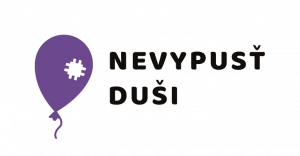Care Fair: a school-based wellbeing event
Care Fair is a pilot project led by Nevypusť duši aiming to reflect on the forms of a safe school environment open to debate about mental health without the prejudice and stigma attached to mental illness.
The pilot project aims to reduce the barriers that prevent young people (aged 15-18) from accessing support services for their wellbeing, including, but not limited to, mental, emotional, psychological, sexual, reproductive, social and community health.
The overall objective of this pilot project is to empower 15 to 18 year-olds to take ownership of their wellbeing, including but not limited to mental, emotional, psychological, sexual, reproductive, social, community health. By connecting students with organizations/NGOs/experts active in the context of wellbeing, they gain a better understanding of the resources available to them and their access rights. Having had a first informal contact at the fair, will reduce the barrier to seek help or to start taking preventive measures.
More specifically, the pilot project aims to:
• Raise awareness among the student population about the importance of a holistic understanding of wellbeing.
• Expand access to knowledge and resources for prevention, care, and self-care among students.
• Foster a dialogue among students about these issues.
• Give students the possibility to actively engage in the implementation of a project, outside the teaching programme.
activities
The project started in October 2022 and the Care fair (called Soul Fair in Czech) took place on 21 April 2023 in Rumburk, a small town in the Northern part of the Czech Republic, near the German border.
Nevypusť Duši choose a secondary school (Gymnasium) in Rumburk to collaborate with and organise the care fair. The choice was triggered by the remote location which means that students have even less access to services than in other parts of the country.
The first activity consisted in research. This was conducted mainly at the school and with the students.
The first step in the research was the organisation of workshops in the school, one with students and one with teachers. 32 students participated in the workshop which started a process of identification of needs. All of them were from the last two years of study. Students were also asked to volunteer to become part of the “board” who would organise the care fair. 12 volunteered, which was higher than expected. All of them were asked to do some homework to check their motivation. All did and they have constituted a stable board for the whole duration of the project.
The board was subsequently involved in research activities which they themselves co-designed. Three workshops were held over a period of 3 months, two online and one in Prague. Students were trained for the research and did interviews with fellow students, parents, teachers and external stakeholders, including service providers linked to wellbeing and mental health.
The second main activity was the design and organisation of the care fair. The student board defined their priorities and the overall concept during n in-person workshop. This was the start of a process to organise the care fair, defining the content and activities. Service providers were contacted to fill in the rather ambitious programme. It was also decided that the care fair would be for all the 380 students and also all teachers-, instead of the more senior students as originally foreseen. Students participated in the detailed design of the fair, including the communication to students, the decoration of the school and of the rooms where activities took place, and side activities that would help create the right atmosphere and lower barriers to participation.
The care fair itself included various activities, mainly for the students, but also for parents, teachers and external stakeholders; Officials from the city and region were present, as well as some teachers coming from other schools. There was a program for the adults in the “aula” that lasted from 9 to 12. Teachers had their own workshops, which they had to register for. There was an offering of workshops for parent as well. But the bulk of the program addressed the 380 students and was with open access, no registration was required. These included :
• An offer of twelve parallel workshops of 45 minutes, some repeated every hour on subjects like how to help friends, how to talk to parents, to behave in the online world, the school as a safe space, abuse of substances, map of the queer world, etc.
• Crisis rooms, where students could have a one-to-one conversation with a therapist
• Two chill out rooms (one quiet, one not)
Impact
The care fair was a success in terms of participation as well as satisfaction of participants. The actual impact on the mental health of the students will be very difficult to measure, and will appear only in the longer term. But for sure, the event has managed to increase the attention to the subject for the students, but also for all adults involved, whether professionally or as parents.

Nevypusť duši a Czech NGO that focuses on preventing mental illness and advocates for systemic changes in mental health care. The project’s activities will result from a collaboration with Rumburk High School.
Find out more about Nevypusť duši:
